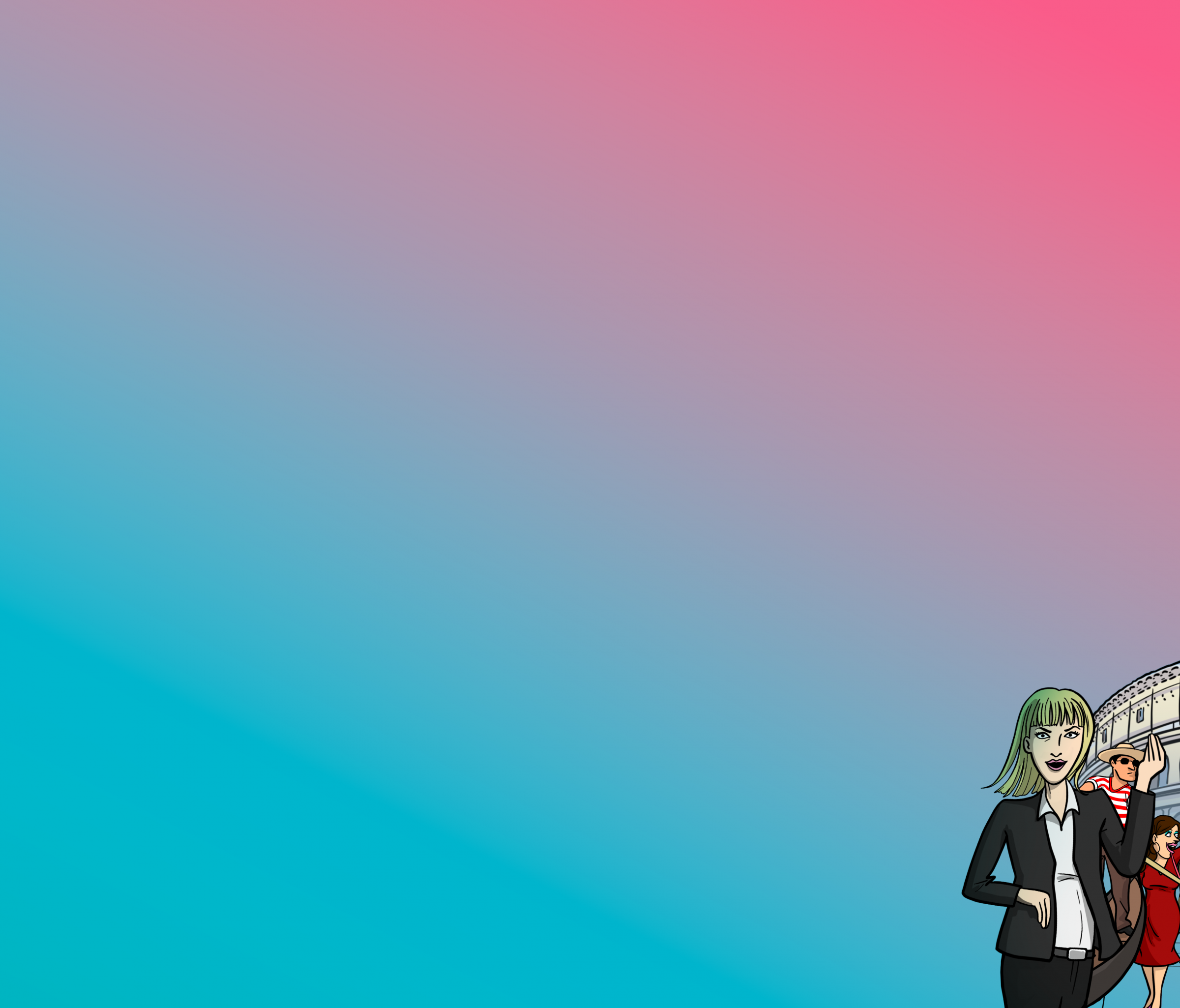Adjective placement
Adjectives usually come after a noun or a verb like essere (to be) or sembrare (to appear, to look). They're used to describe a trait.
Ciro sembra stupido.
Ciro seems stupid.
Roma è una città grande.
Rome is a large city.
Sometimes the adjective comes before a noun for emphasis, or to give it a particular meaning.
Ho una piccola casa.
I have a small house.
Vedo un bell’hotel.
I can see a nice hotel.
Some adjectives mean something different depending on whether they come before or after the noun. These are the main ones:
| Before | After | Examples | |
|---|---|---|---|
| Bello | Nice, pleasant, lovely | Beautiful, attractive | Una bella serata A lovely evening Una modella bella A beautiful model |
| Buono | Good, high-quality | Kind, honest | Un buon lavoro A good job Un uomo buono A kind man |
| Povero | Poor (unfortunate) | Poor (penniless) | Un pover'uomo A poor (unfortunate) man Un Paese povero A poor country (economically) |
| Certo | Some | Sure, safe | Ha certe idee strane He has some strange ideas Una scelta certa A safe choice |
| Grande | Great, important | Large | Una grande attrice A great actor Una borsa grande A large bag |
| Diverso | Several | Varied, different | Ci sono diverse persone There are several people Sono scelte diverse They are varied options |
| Vecchio | Old (known to the speaker for a long time) | Old (objectively), elderly | Una vecchia amica An old friend Una casa vecchia An old house |
Still facing difficulties with 'Adjective placement'? Enhance your grammar and learn Italian through our online Italian lessons.
Start with a free test and improve today!
What our users say:
Improve your Italian further and test Saga Baldoria, online Italian course.

